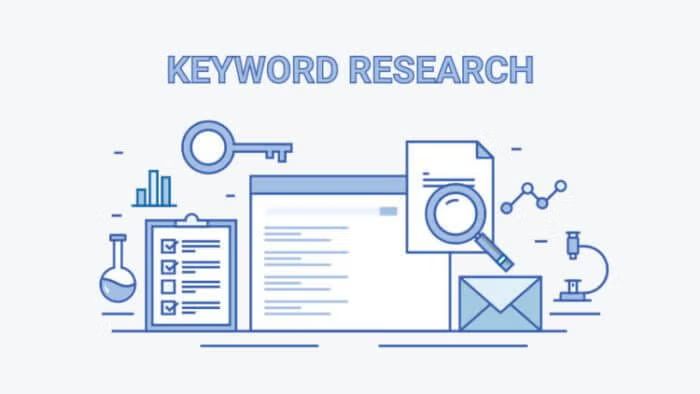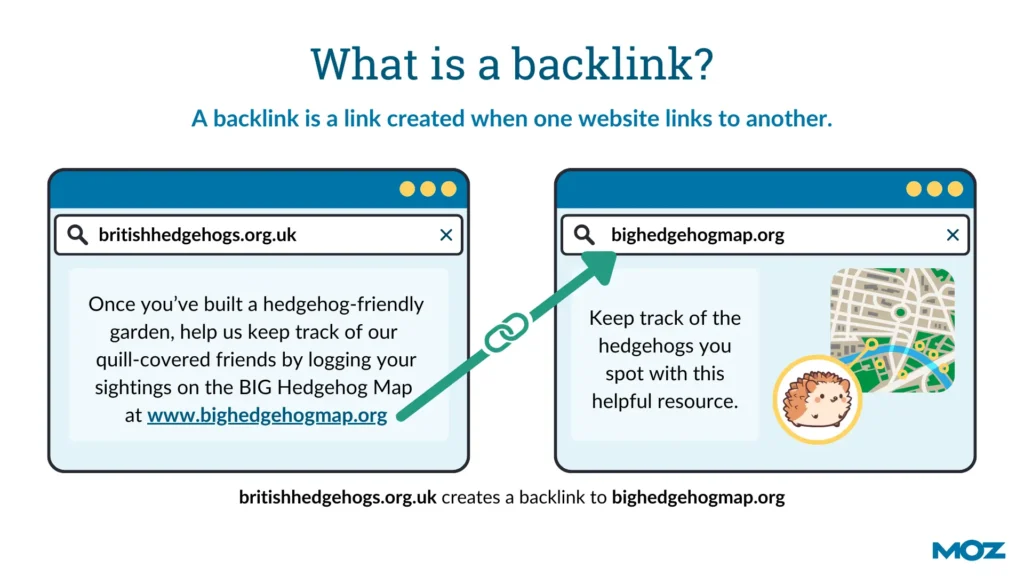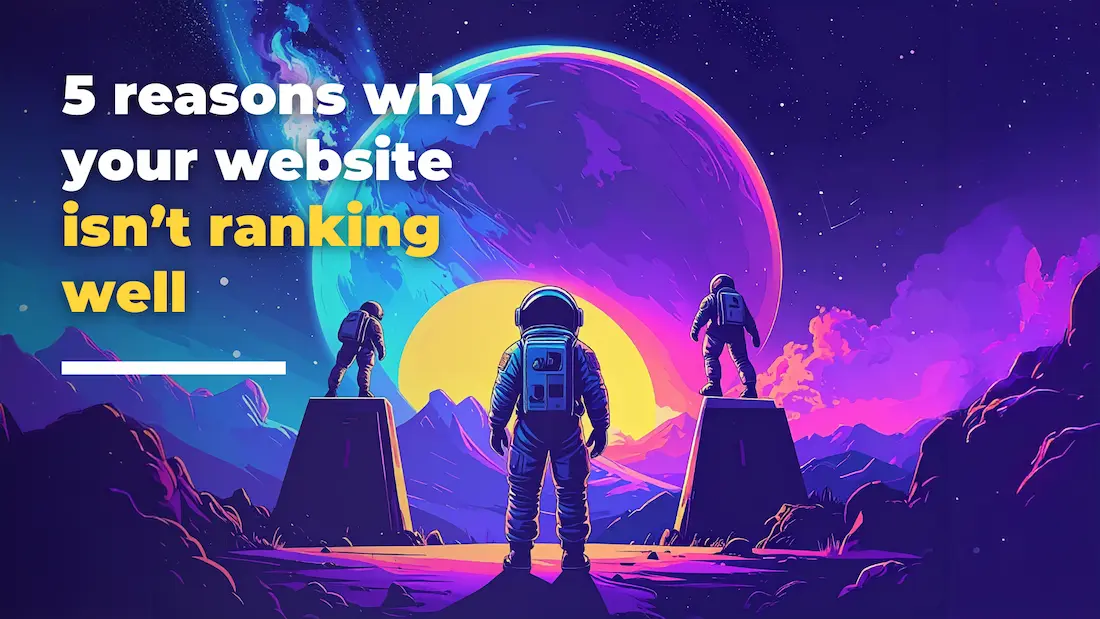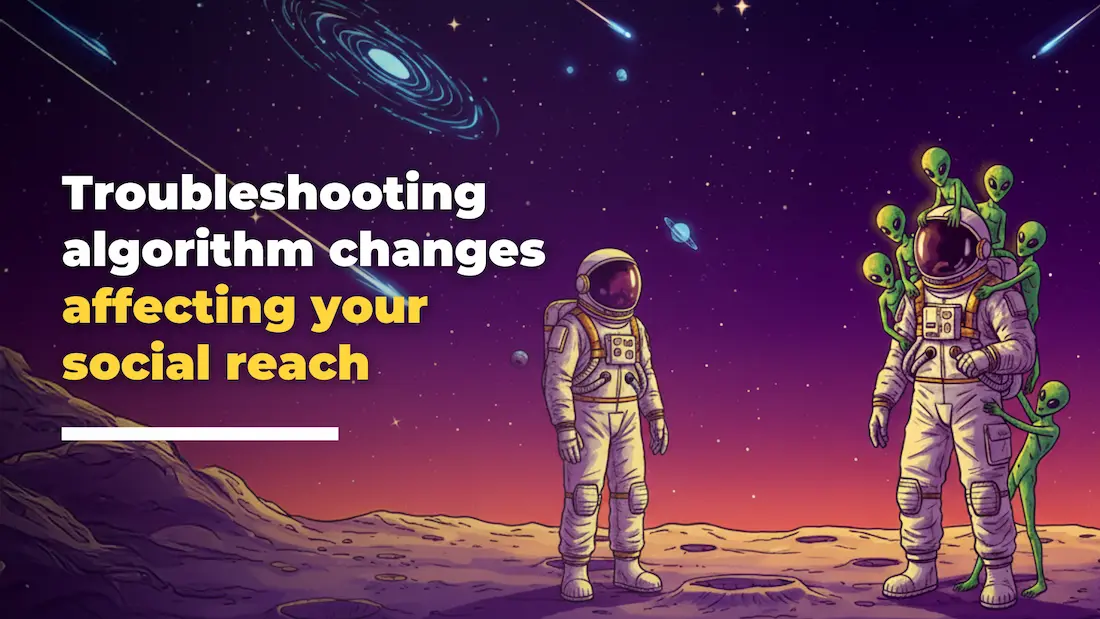Understanding why your website isn’t ranking high on search engines can be quite frustrating. You might feel like you’ve put in significant effort, only to see minimal results. With numerous businesses online vying for attention, standing out becomes a priority, and core to this is ranking high on search engine results. SEO, or search engine optimization, plays a key role in this quest. It helps search engines understand what your site is about and how relevant it is to what users are searching for. Yet, despite your best efforts, you might find your website isn’t ranking well and is lost in the vast sea of online content.
Many people start with SEO expecting quick wins, but not seeing immediate results can be discouraging. It’s like planting seeds in a garden; the growth happens over time with the right care. There are common reasons why your website isn’t ranking well, even after all your efforts. Let’s explore why this could be happening and what you can do about it.
Ineffective Keyword Strategy
Keywords direct users to your website. However, it’s critical to choose the right ones. If you’re targeting keywords that are too broad or extremely competitive, you might be setting yourself up for disappointment. Instead, think of keywords as a dartboard; you want to aim for those precise long-tail terms that hit the target audience squarely. These are the phrases people type when they’re looking for specific information, and they’re especially important when optimizing for local search and giving your presence a quick bump if your website isn’t ranking well overall.

A common mistake is selecting keywords that don’t necessarily align with what your site offers. If your website discusses the best hiking trails in Vancouver, targeting a broad term like “outdoor activities” might not effectively reach your audience. Instead, zeroing in on “hidden hiking trails in Vancouver” could attract a more interested and localized group of searchers.
Here’s a simple checklist to refine your keyword approach:
- Cross-check that your keywords align with your content’s intent.
- Use local terms to reach users in specific areas, like “Vancouver web design tips.”
- Choose long-tail keywords for more precise targeting, ensuring they reflect what you’re offering.
- Monitor and adjust keywords based on performance metrics.
Choosing the right keywords is more than half the battle in mastering SEO. Getting this aspect right can be the difference between wandering aimlessly online with a website that isn’t ranking well or leading users straight to your digital doorstep and establishing your brand as an authority in your industry. As you fine-tune this strategy, you’re making sure your website speaks the language of both search engines and your potential audience.
Poor Website Structure and User Experience
Search engines love a well-organized website. When your site structure is chaotic, it can confuse both search engines and visitors, leading to you wondering why your website isn’t ranking high on search pages. Think of your website like a well-laid-out store; customers should easily find what they’re looking for without getting lost. Issues like broken links or complicated navigation are barriers that drive visitors away and negatively impact your SEO.
Page speed is another important factor. A slow loading time can deter visitors and cause search engines to rank your site lower. Improving user experience doesn’t just make your site visually appealing, it keeps visitors engaged and helps search engines navigate your content more effectively.
Here are some tips to enhance your website’s structure and user experience:
- Ensure all links are working: Regularly check for broken links and fix them promptly to maintain smooth navigation.
- Simplify navigation: Make sure your site’s menu is intuitive and easy to understand.
- Improve page speed: Compress images and use efficient coding practices to boost loading times.
- Create a logical flow: Arrange your content in a way that guides visitors naturally from one page to another.
By addressing these elements, you’re not only making your site more attractive to users but also more accessible to search engines.
Lack of Quality Backlinks
Backlinks act like votes of confidence from other websites, signalling to search engines that your content is valuable and trustworthy. However, not all backlinks are created equal. It’s the quality, not the quantity, that counts. Spammy backlinks can hurt your reputation and add onto the list of reasons why your website isn’t ranking well, while high-quality ones can boost your credibility.

Building good backlinks takes time and effort. Consider writing guest posts for reputable sites or teaming up with local businesses for link exchanges. These connections can enhance your site’s authority and increase traffic.
Inconsistent and Low-Quality Content
Your content is the heart of your website. High-quality content answers the questions your audience is asking, keeping them coming back for more. On the flip side, thin or poorly written content can push potential visitors away and harm your SEO efforts which is a huge factor when looking at why your website isn’t ranking well. Search engines favour well-researched, engaging content that provides real value.
To maintain high content quality:
- Plan your content: Use a content calendar to ensure regular, fresh updates.
- Focus on originality: Avoid duplicate content and strive for fresh perspectives.
- Keep it relevant: Make sure your content addresses current trends and topics of interest.
By continuously refining your content strategy, you not only improve your SEO but also build a loyal audience that trusts your site.
Navigating SEO Challenges When Your Website Isn’t Ranking Well
Each reason outlined here reflects a piece of the puzzle that is SEO. Fixing these common issues doesn’t just help your website rank better; it enhances the entire experience for your visitors. Consider this an ongoing process of evaluation and adaptation. As you refine your approach, you’ll find that improvement comes gradually, much like nurturing that garden we mentioned earlier.
Thinking strategically about your SEO efforts can transform your online presence. By understanding and adjusting to these challenges, you pave the way for your website to thrive.
If you’re ready to see your website climb the ranks and increase its visibility, consider partnering with a marketing agency with SEO expertise like Loomo. Our expertise in enhancing digital strategies can give your site the boost it needs to succeed.





